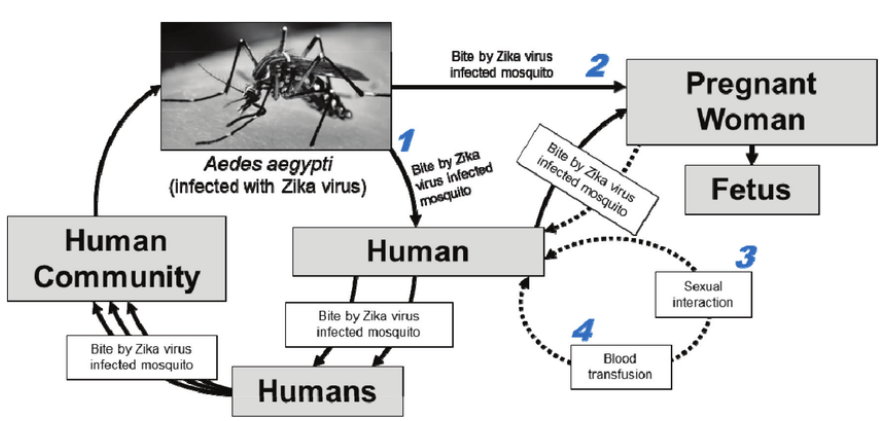ICMR Collaborates with IIL to Develop Zika Vaccine
Why in the news?
ICMR and IIL have partnered to develop India’s first Zika virus vaccine. Clinical trials are set to begin, marking a crucial step in combating the mosquito-borne disease.
About the Zika Vaccine Development:
- The Indian Council of Medical Research (ICMR) has partnered with Indian Immunologicals Limited (IIL) to develop India’s first vaccine against the Zika virus.
- A memorandum of association has been signed between ICMR and IIL to start clinical development of the vaccine.
Vaccine Development Details
- The vaccine is a codon de-optimised live attenuated vaccine, with Phase I clinical trials expected to begin soon.
- This marks a major step toward creating India’s self-reliance in vaccine development as part of the Atmanirbhar Bharat and Viksit Bharat initiatives.
Zika Virus Overview
- Zika virus is primarily transmitted by Aedes mosquitoes but can also spread through pregnancy, sexual contact, blood transfusions, and organ transplants.
- There is currently no vaccine available to prevent Zika infections. Rajiv Bahl, ICMR’s Director-General, called this a significant milestone, while K Anand Kumar, Managing Director of IIL, expressed pride in collaborating with ICMR for the vaccine development.
About the Indian Council of Medical Research (ICMR):
- The Indian Council of Medical Research (ICMR) is India’s apex body for biomedical research.
- Its key mandate is to conduct, coordinate, and implement medical research for societal benefit.
- ICMR focuses on translating medical innovations into practical products and processes for public health.
- It aims to introduce these innovations into the public health system for widespread impact.
- The council is funded by the Government of India through the Department of Health Research, under the Ministry of Health & Family Welfare.
- ICMR plays a critical role in advancing healthcare and medical research in India.
About Zika Virus:
- Zika virus is a Flavivirus transmitted by Aedes mosquitoes (also vectors for dengue and yellow fever).
- It can cause microcephaly in newborns and Guillain-Barré syndrome in adults.
- First discovered in Uganda’s Zika Forest in 1947; first human case in
- Major epidemic in Brazil in 2015; WHO declared it a Public Health Emergency in 2016.
Transmission and Testing
- Transmitted via mosquito bites, sexual contact, blood transfusions, and from mother to foetus.
- Diagnosed by detecting viral RNA in body fluids like blood, urine, and saliva.
Sources Referred:
PIB, The Hindu, Indian Express, Hindustan Times




